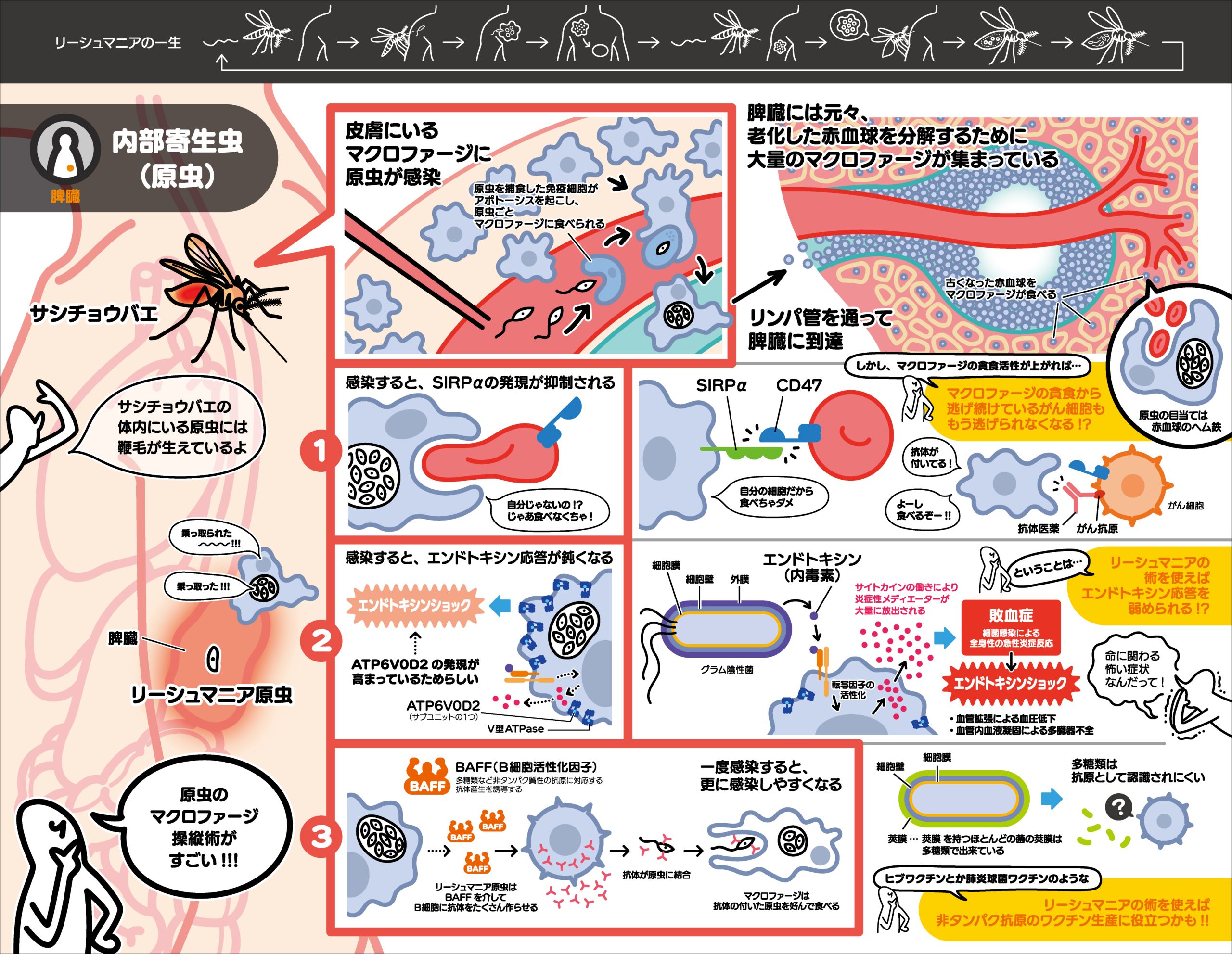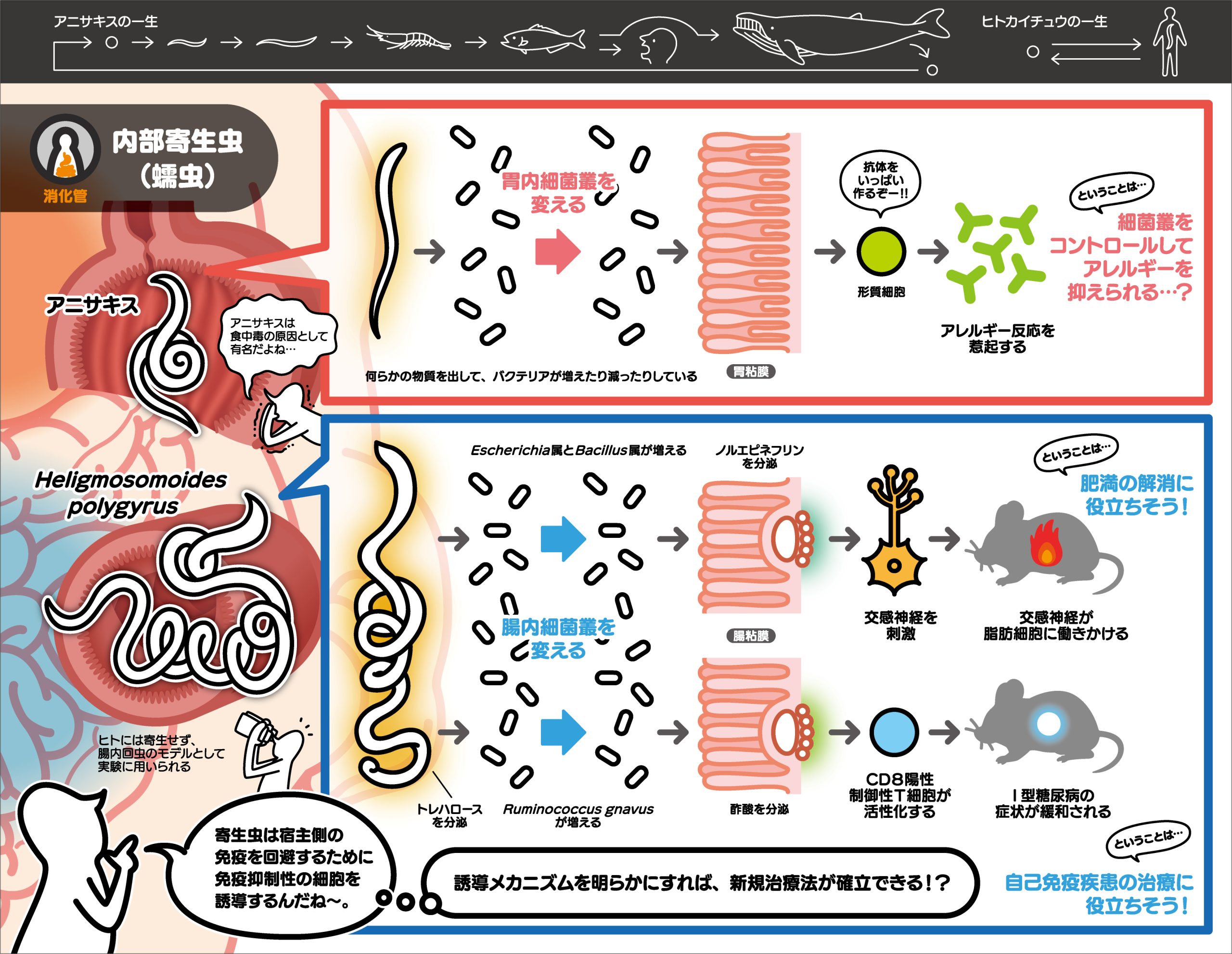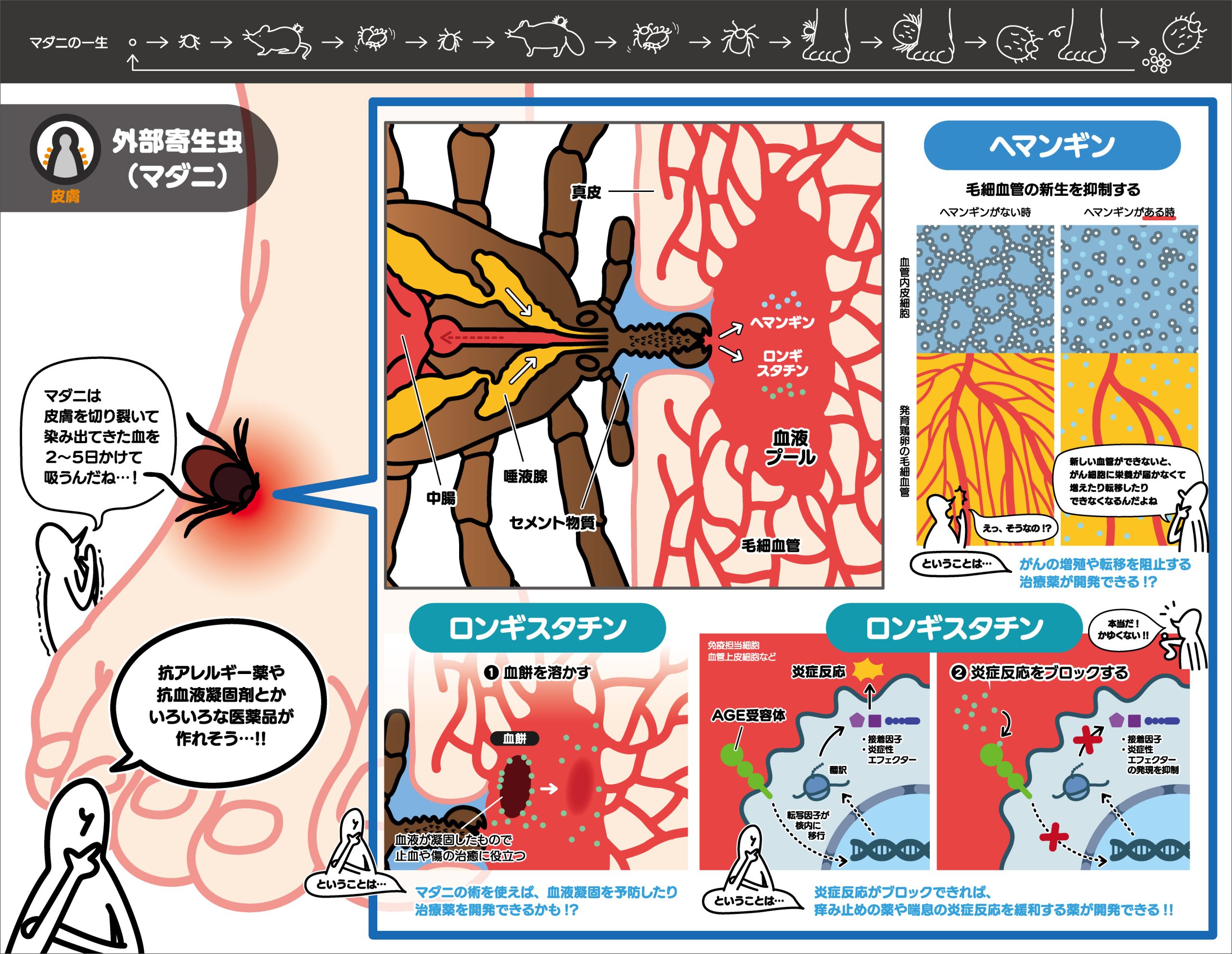Macrophages are the major host cells for Leishmania parasites, and determine the fate of infection by either limiting or allowing growth of the parasites, resulting in development or control of leishmaniasis, respectively. They also play important roles in causing pathological outcomes during Leishmania infection. The pathophysiology is complex and include a wide variety of molecular and cellular responses including enhancement of inflammatory responses by releasing cytokines, causing damages to surrounding cells by reactive oxygen species, or disordered phagocytosis of other cells. It is of note that disease severity in leishmaniasis sometimes does not correlate with parasite burdens, indicating that pathological roles of macrophages are not necessarily linked to their parasite-killing activities that are often defined by M1/M2 status. Here, we review the roles of macrophages in leishmaniasis with a focus on their pathological mechanisms in disease development.



